*** IN STOCK!! ***
***Min. FOM 2376+ (P/N -A64 & -A65) Now Available for Order***
TNVC is proud to announce the release of the L3Harris Ground Panoramic Night Vision Goggle (GPNVG) with 2376+ Minimum Figure of Merit Unfilmed White Phosphor image tubes available FOR COMMERCIAL SALES through TNVC. No longer do you need to “know a guy who knows a guy” or make backdoor deals for gray market systems–these units are fully backed by L3Harris for open commercial sales!
TNVC is a full distributor for ALL products within the L3Harris Integrated Vision Solutions portfolio, offering finished goods direct from L3Harris.
***These systems are available for order now at TNVC and are a regular part of TNVC’s commercial, military, and law enforcement product lineup, and are available for Professional Level dealers, as well as agency and unit pricing through TNVC.***
***Contact us for questions regarding lead times***
THE L3HARRIS GPNVG FEATURES NON-ADJUSTABLE DIOPTERS. THE STANDARD INCLUDED DIOPTER IS -0.5. SEE BELOW FOR MORE INFORMATION TO DETERMINE ALTERNATE DIOPTERS BASED ON EYE PRESCRIPTION WHICH ARE AVAILABLE FOR PURCHASE HERE
The standard diopter lens of -0.5 results in a system diopter of -0.5. This means the eyepiece is focused to a distance of 2 meters (1 ÷ 0.5). This is typically a comfortable point of focus for the eye when either having good uncorrected or corrected vision. So if an individual is using the GPNVG while wearing their corrective eyewear they should use the -0.5 diopter. However, if that individual is using the GPNVG without their prescriptive eyewear then they would take their optical prescription and subtract 0.5 from it to determine the proper screw on diopter.
Featuring L3Harris’ improved Ruggedized Bridge design, offering greater strength and durability during rough use in the field, as well as four high performance, MIL-SPEC Unfilmed White Phosphor image intensifier tubes that combine using specialized hybrid optics to provide the end user with an umatched 97o degree field of view, as opposed to the standard 40o field of view provided by traditional binocular night vision systems.
Previously requiring approval from DoD program managers even for government agencies, by working in close cooperation with L3Harris, TNVC has been able to not only lower barriers to armed professionals with the need and means for these capabilities, including the previously restricted “High FOM” (Min. 2376+) systems.
The advantages of the increased, panoramic field of view offered by the GPNVGs cannot be overstated. Not only do they have obvious benefits for assaulters, but they offer critical situational awareness to vehicle and watercraft operators, increasing safety and reaction/response time. When used by multiple operators working in a team, the GPNVGs have a multiplicative effect, offering greatly enhanced security with interlocked fields of fire and observation, reducing operator fatigue and “giving up” dead space when scanning surroundings.
Read TNVC’s White Paper on Wide Field of View (WFOV) NVGs here!
TNVC WFOV NVG White Paper – Distribution: Unlimited
These brand new systems, available for commercial sales will come with a complete factory warranty from L3Harris and continuing product support, even after the stated warranty period has ended, as well as factory Tube Data Records for each of the four, matched and collimated MIL-SPEC MX-10160 format, 2376 Minimum Figure of Merit, Unfilmed White Phosphor image intensifier tubes. The units also come complete with the smaller 4x AA powered external Cold Weather Battery Pack with integral strobes (an external battery pack is required for operation, as the GPNVG has no onboard power supply–4x CR123 Battery Packs are available as a separate optional component), and are available in BOTH ANVS Ball-Detent format and BNVS Dovetail format mounting configurations with the appropriate cables to function with the mounting configuration. The external power supply also serves a secondary function as a counterweight to the GPNVG’s no inconsiderable system weight of 27 ounces.
One of the biggest innovations in night vision technology with the Ground Panoramic Night Vision Goggle (GPNVG). The purpose of the GPNVG is to provide the operator more information under goggles, allowing them to more quickly move through the OODA Loop (Observe, Orient, Decide, Act). The most striking feature of the GPNVG is the presence of four separate image intensifier tubes with four separate objective lenses arrayed in a panoramic orientation. The center two lenses point forward like traditional dual-tube goggles, giving the operator more depth perception, while two more tubes point slightly outward from the center to increase peripheral view. The two tubes on the right and the two on the left are spliced at the eyepieces. The operator sees the two center tubes somewhat overlapping the two outer tubes to produce an unprecedented 97° FOV. The two right and two left tubes are housed in merged assemblies and are hung from a bridge similar to ANVIS goggles, giving operators transverse interpuplliary adjustment. They can also be easily removed and operated as independent handheld viewers.
System adjustment and placement is key in providing the best image to the operator. One of the main adjustments for focus in a night vision goggle is the diopter. Diopter focus adjustment is traditionally achieved by rotating a diopter focus ring. This adjusts focus of the goggle as it is in relation to the individual wearer’s eye(s). The challenge presented by the panoramic lens assembly of the GPNVG is that the rear lenses are “fused” together, almost like a prism. This is what gives the operator the overlapping images from the forward and angled tubes. But, it also keeps the goggles from being able to have diopter rings for focus. The GPNVG comes standard with a -0.50 dioter insert, optimized for the 95th percentile of users, however diopter adjustments can be accomplished with interchangeable diopter windows that stand off the lens.
The GPNVG utilizes mil-spec Gen3 Unfilmed White Phosphor 18mm MX-10160 image intensifier tubes. These tubes are good for maintenance because they use L3Harris’ solder-free replaceable tube design. This is a very welcome feature since the modular L3 tubes do not require a whole operation to replace. Some quick work with common tools, and the tube replacement is done. In fact, the entire goggle has been designed with maintenance in mind. One of the biggest issues with NVG’s (and just about any highly technical device) is maintenance of damaged/non-functioning equipment. This is often a lengthy process that requires a unit to be without equipment for a while because devices require specialty tools and facilities for repair. The GPNVGs have a totally modular chassis with a fully serviceable bridge.
Using the GPNVG is a very unique experience. For someone who has grown accustomed to the narrow FOV of standard goggles, the night looks completely different with 97°. There is no loss of visual acuity in the outer channels, so image looks as crisp in the widest parts as it does in the traditional “zone 1.” There is a slight wave of blocked image in the overlap, but it is minor and you only “see” an overlap of three images since your brain melds the two center tubes (just like any binocular system). After wearing the goggle for about five minutes, your brain does not even see the slight black semi-circle where the overlap occurs.
The GPNVG is representative of pure out-of-the-box thinking. While they are not using any of the new “groundbreaking” fusion technology or jacking you into a satellite feed, the simple fact that they allow the operator to see more is a godsend. After all, NVG’s are there to allow you to see at night. So, the more you see, the better off you are. It is as simple as that. These goggles give the operator the ability to do more while using the same visual FOV he has during the day, at night. The GPNVG is an extraordinary development in night vision application, giving the modern Warfighter more combat options and increasing his lethality.
Export of Night Vision Equipment or related accessories (such as manuals) is strictly regulated by the US Department of State in accordance with the guidelines of the International Traffic in Arms Regulations (ITAR). It is a major crime to ship or carry US manufactured night vision devices outside the borders of the United States, punishable by fines and prison sentences. Ignorance of these regulations will not hold up in court. By purchasing night vision equipment from TNVC, you attest that you will not attempt to export or carry this night vision equipment outside the borders of the United States. Also, it illegal to allow a non-US Citizen to look through US Gen3 Night Vision Devices, even on US soil. Again, this is a crime punishable by fines and prison sentences.
SPECS
| Manufacturer | L3Harris Technologies |
|---|---|
| Dimensions | 5.625in(L) x 8.50in(W) x 3.75in(H) |
| Weight | 27.0 oz |
| Finish | FDE, Corrosion Resistant |
| Power | Four (4) 3V CR123A Batteries (Remote) |
| Battery Life | Approx. 30 Hours |
| Waterproof | One Meter for Two Hours |
| Warranty | 1 Year Warranty |
| OPTICAL | ------------------------------------------------------------ |
| Generation | Gen3 U.S. L3Harris |
| Tube Type | Four 18mm MX-10160 |
| Minimum Figure of Merit (SNR x lp/mm) | 1792 |
| Film/Phosphor | Unfilmed White Phosphor (P45) |
| Gate | Auto |
| Gain | Auto |
| Magnification | 1x |
| FOV (Field of View) | 97° |
| Ocular Lens | Snap-On Windows -0.5 standard |
| Focus | 18in to Infinity |
| INCLUDES | GPNVG Goggle, Remote Battery Pack, Connection Cable, Hard Storage Box, Padded Transport Case, Batteries, Lens Cleaning Kit |





















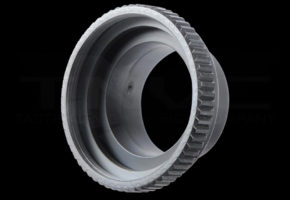
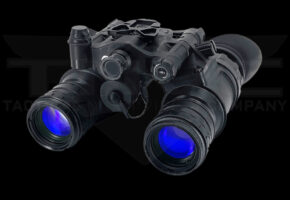
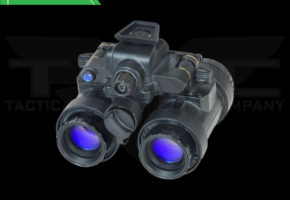


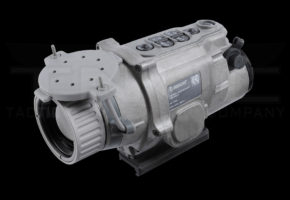
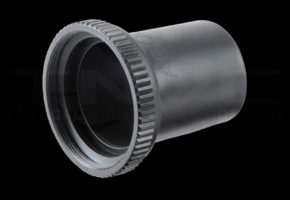
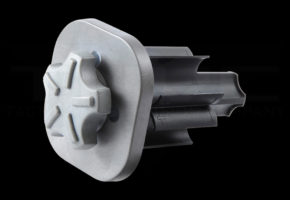

Reviews
There are no reviews yet.